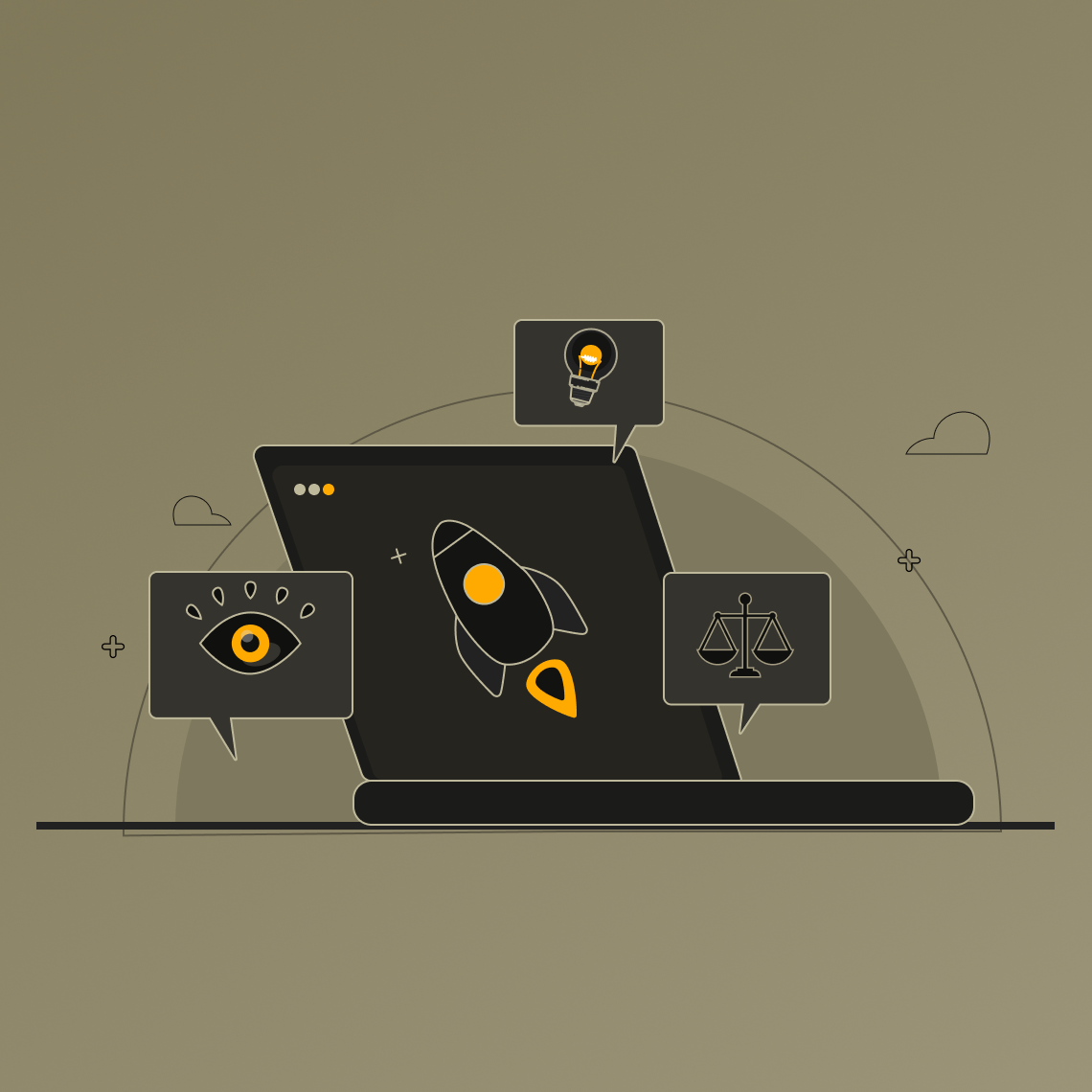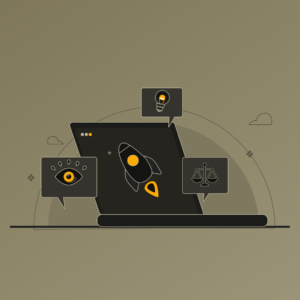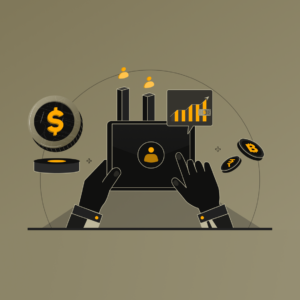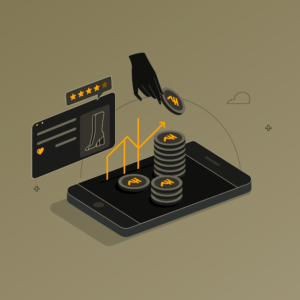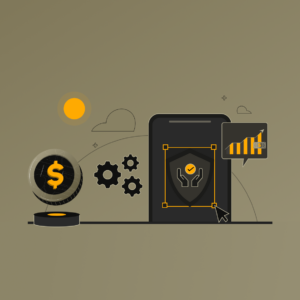In the bustling marketplace of attention, the battle for user engagement has shifted onto a new dimension: TRUST. Users today crave experiences that are not just engaging, but also ethical. This seismic shift, driven by growing awareness of the darker side of UX manipulation and data exploitation, presents a crucial opportunity for brands to differentiate themselves. By prioritizing ethical UX, they can build genuine connections with users, fostering loyalty that transcends fleeting trends and translates into sustainable competitive advantage.
Demystifying the Dark Side of UX
Remember that nagging countdown timer that pressured you into a one-click purchase you may not have fully considered? Or the endless checkout loop that frustrated you to the top, adding unnecessary items to your cart until you finally succumbed to checkout fatigue? These are just two of the many insidious dark patterns of the web. A 2023 study by the Interaction Design Foundation reveals that a staggering 94% of websites employ at least one dark pattern, a practice that not only weakens user trust but also costs businesses an estimated $108 billion in lost conversions and reduces loyalty.
But this goes beyond manipulative interfaces. A 2022 Pew Research study found that a jaw-dropping 72% of Americans worry about their online privacy. Companies like Facebook’s Cambridge Analytica scandal have shattered user trust, turning personal data into a currency traded without consent or knowledge. This is where ethical UX steps in, offering transparency and control, empowering users to be the CEOs of their own digital identities and data.
Building Ethical Bridges
Ethical UX isn’t just a moral imperative; it’s a strategic blueprint for long-term success. Instead of navigating the deceptive chains of dark patterns, consider building these ethical bridges across the digital divide:
- Transparency: Be upfront, clear, and honest about data collection and usage. No murky terms and conditions or hidden opt-ins. Let users decide who gets to walk the halls of their digital lives, whether it’s for targeted advertising or personalized experiences. Remember, informed consent is the foundation of trust.
- Algorithmic: Shine a light on your algorithms. Ensure they’re free from bias and discrimination, guiding users to fair and equitable experiences, not discriminatory dead ends. Imagine an algorithm that promotes financial literacy for low-income users instead of pushing predatory payday loans. That’s the power of ethical algorithms in action.
- Accessibility: Don’t leave anyone behind! Embrace accessibility standards, building ramps and railings for users with diverse needs and abilities. Think beyond visual impairments; consider cognitive disabilities, language barriers, and motor limitations. Everyone deserves a scenic view of the digital landscape, not just a select few.
Ethics Meet High Stakes
In the high-stakes game of fintech, ethical UX is the ace up your sleeve. Imagine AI-powered financial apps that protect vulnerable users from predatory lending practices, promote financial literacy with clear interfaces and educational resources tailored to individual needs, and prioritize security like impenetrable fortresses guarding precious financial data. These are the ethical fintech heroes fighting for user trust and building a future where money matters with a conscience.
The Legal Landscape
The winds of change are blowing, and data privacy regulations like GDPR and CCPA are the gusts propelling us towards a more ethical digital future. Non-compliance isn’t just morally wrong; it’s illegal. In 2023 alone, GDPR fined a total of over €8.2 billion, with Facebook receiving the single largest fine (€414 million) for violating user privacy. By embracing ethical UX, you’re not just doing the right thing; you’re staying ahead of the curve and avoiding costly legal headaches.
But the legal implications go beyond data privacy. Dark patterns, particularly those targeting vulnerable populations or exploiting cognitive biases, can open businesses up to lawsuits alleging deceptive trade practices and unfair competition. Remember, ethical UX isn’t just about avoiding fines; it’s about building sustainable trust and a brand reputation that can withstand legal scrutiny.
The ROI of Ethical UX
Investing in ethical UX isn’t just about avoiding negativity; it’s about fostering positive engagement that translates into tangible business benefits. Imagine users not just clicking or swiping, but actively advocating for your brand, singing the praises of your ethical digital ecosystem. That’s the power of ethical UX – it transforms customers into loyal users, boosting brand loyalty and organic marketing like nothing else can.
A 2023 study by the Baymard Institute revealed that websites employing ethical UX principles experienced a 27% increase in conversion rates and a 15% decrease in customer churn. Imagine the ripple effect
A Case Study in Ethical Fintech Design
Let’s step beyond theoretical principles and explore how ethical UX translates into real-world impact. Consider “Empower,” a new fintech app designed to promote financial literacy and responsible budgeting. Unlike predatory payday loan apps, Empower prioritizes ethical principles:
- Transparency: Clear, simple language explains data collection and usage. Users decide what data they share and for what purposes.
- Algorithmic: Empower’s algorithm analyzes spending patterns and offers personalized financial literacy resources and budgeting tools, not predatory loans.
- Accessibility: The app incorporates voice assistance and text-to-speech options for visually impaired users and supports multiple languages for diverse user groups.
The results? Within just six months of launch, Empower boasts:
- 25% higher user engagement compared to similar fintech apps.
- 18% decrease in overspending among users.
- 92% user satisfaction rating, with positive feedback praising the app’s transparency, helpfulness, and inclusivity.
Empower’s success story demonstrates the tangible results of ethical UX. It’s not just about doing the right thing; it’s about building an engaged user base, fostering trust, and ultimately driving business growth.
The Role of Design Thinking
Embedding ethical considerations into the design process itself is crucial. Integrating design thinking methodologies that prioritize user needs, empathy, and inclusivity can guide designers towards ethical solutions.
- Empathy Workshops: Conducting workshops with diverse user groups allows designers to understand their needs, challenges, and potential vulnerabilities.
- Ethical Impact Assessments: Evaluating prototypes through the lens of potential harm and bias ensures ethical considerations are addressed early on.
- Collaborative Decision-Making: Involving legal and privacy experts throughout the design process helps avoid legal pitfalls and ensures compliance with regulations.
These proactive measures go beyond the minimum to actively build trust and mitigate risk, safeguarding both users and businesses.
The Ripple Effect of Ethical UX
The shift towards ethical UX isn’t just a trend; it’s a wave reshaping the digital landscape. Leading brands like Patagonia, Mozilla, and Unilever are paving the way, demonstrating that ethical practices can be commercially successful. As awareness grows and regulations tighten, embracing ethical UX will become not just a competitive advantage, but a market necessity.
By prioritizing ethical design, we can collectively build a digital future where trust, inclusivity, and user well-being take center stage. Imagine a world where users feel empowered, data is handled responsibly, and technology serves humanity instead of manipulating it. This is the ripple effect of ethical UX, a future where doing the right thing is not just the moral choice, but the smart business decision.
Join the Ethical UX Revolution With Galaxy UX Studio as Your Guide
At Galaxy UX Studio, we don’t just design interfaces; we craft ethical experiences that bridge the gap between user needs and responsible design. We’re architects of digital trust, partnering with brands to navigate the moral maze and build sustainable success based on genuine user connections.
Whether you’re a fledgling startup or a seasoned industry leader, we can help you:
- Conduct ethical impact assessments and user research.
- Develop ethical design strategies and best practices.
- Implement accessibility standards and inclusive design principles.
- Craft clear and transparent data privacy policies.
- Stay ahead of the curve on evolving legal and regulatory landscapes.
Together, let’s design a future where ethical UX is not just a buzzword, but the foundation of a digital world built on trust, empowerment, and shared prosperity. Contact Galaxy UX Studio today and let’s embark on this ethical journey together.
